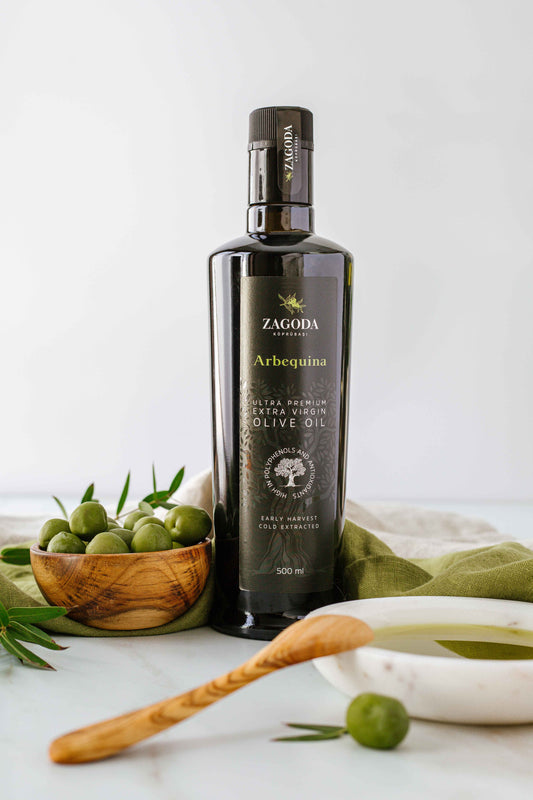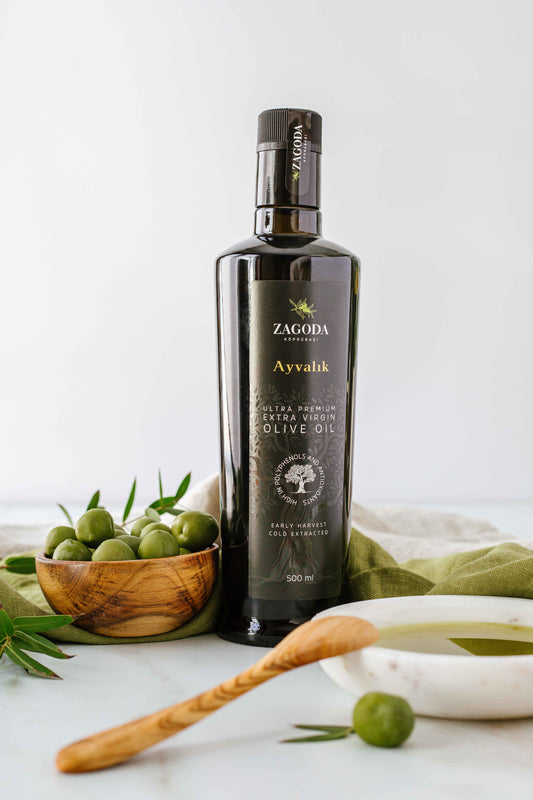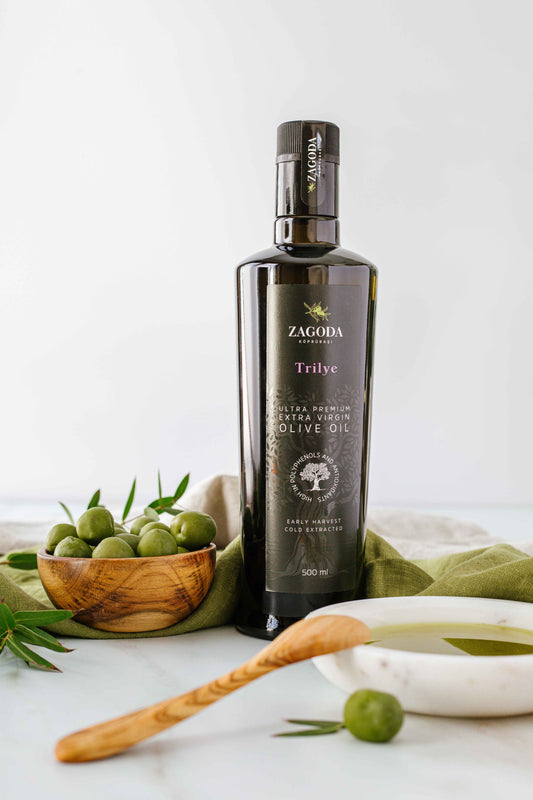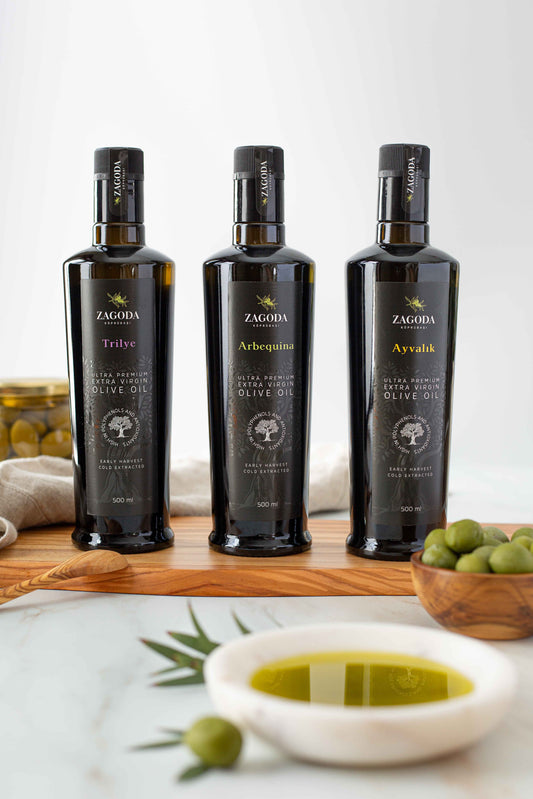Olive oil is the best oil for plants to grow fast. Plants can benefit from the use of olive oil. It is an economical method of giving the plant more nutrients and keeping pests away.
Olive oil provides many vitamins to plants. Olive oil is beneficial for plants because it provides vitamins E and K and can act as a barrier against pests. When not applied correctly, it might harm the plants as well. The best way to get the benefits of olive oil on plants is to spritz them with it.
This article will explain the basic principles of applying olive oil to plants, as well as the dos and don'ts of utilizing it to ensure the healthiest possible outcome for your plants.
What is Olive Oil?
The oil of olives is more than just a basic kitchen ingredient. It is a rich source of monounsaturated fatty acids, antioxidants, and phytonutrients. There are interesting uses for it in your garden in addition to its well-known health benefits for people.
Particularly annoying invaders like spider mites, aphids, and whiteflies may find it difficult to overcome the inherent pest-deterrence properties of olive oil.
These microscopic pests actively participate in harmful conduct in addition to nibbling on your plants. Not only do they consume vital plant components like leaves and root hairs.
But they also act as carriers of dangerous bacterial and fungal infections. The repercussions can be disastrous varying from decreased plant productivity to significant declines in health and, in extreme situations even plant mortality.
Explore the Uses of Olive Oil in Garden
Your plants may benefit from the protection that olive oil offers from tenacious pests and from the necessary vitamins it contains such as vitamin E, which boosts the plant's ability to withstand low temperatures.
1. Clean plant leaves
Using a damp cotton towel, lightly wipe the leaves with three to four tiny drops of olive oil. This will remove dirt and debris gently and leave a layer of shine. After doing this make sure the plants are not left in the sun.
It will scorch the foliage otherwise. To get rid of the oil coating you might also need to wipe the leaves down with a fresh cloth once more.
2. Get Rid of Leaf Miner
The leaf miner consumes the foliage's tissue, leaving unsightly white stains in its wake. It can seriously harm the leaves if left unchecked. Natural leaf miner killer is olive oil.
To make your leaf miner killer at home use one teaspoon of mild dishwashing liquid and two teaspoons of olive oil in one liter of water. Pour it into a spray bottle, give it a good shake, and then sprinkle the impacted plant parts.
A patch test on a few leaves should be done the day before you spray it on your plant to see how it reacts. You should also avoid spraying it in direct sunlight.
3. Pest control
Combine a half-teaspoon of dishwashing liquid with olive oil. Pour the solution into 600 milliliters of water transfer it to a mister bottle give it a good shake, and sprinkle the plant sections impacted by pests.
After spraying the plants with this solution keep them out of the direct sun and avoid exposing them to it again.
4. Prevent Rusting in Garden Tools
Garden tools are susceptible to rusting since they are frequently dropped and exposed to dirt, dampness, and filth. Olive oil can help prevent rust by protecting them. All that's left to do is use a cotton ball to apply a thin layer of olive oil to them. They will function more smoothly thanks to the oil.
5. Apply Sheer Lotion on Hands
To keep your hands hydrated after a demanding day of gardening use olive oil. Excessive exposure to mud and sun can cause rough skin. Soft and supple skin can be achieved by moisturizing with a healthy amount of olive oil.
6. Wooden Furniture
Using a paper towel that has been dried out, apply some olive oil and rub it into the wooden furniture. It won't take long to start looking incredibly sparkling and clean. The wood will become more durable as a result.
7. Construct a Fly Repellant
Use olive oil to create a fly repellent to keep flies away from your house and yard. Combine one or two cups of white vinegar with half or all of a cup of water. To make your fly repellent mix one teaspoon each of eucalyptus and olive oils. Transfer all these components into a spray bottle and mist the area afflicted by flies.
8. As a supplement to soil
To help with soil quality and texture improvement, olive oil can be applied as a soil conditioner. Olive oil's fatty acids can aid in the breakdown of organic materials in the soil and increase plant accessibility. Furthermore, the minerals in olive oil can support healthy plant growth and enhance the general condition of the soil.
Just combine olive oil with compost or topsoil and work it into the soil surrounding your plants to act as a soil conditioner. An alternative is to dilute olive oil with water and mist your plants and soil with it.
Explore the Tips to Keep Away Pests from Your Garden
There are some tips you must follow to keep your garden safe,
1. Your Garden Can Heal with Chamomile
Use your blooms as life support for ill plants once they have flowered. After soaking chamomile flowers in water, pour the aromatic mixture into a spray bottle. Next mist plants that require a little extra energy. The plant chamomile is utilized for its therapeutic qualities and can be used in place of pyrethrum.
2. Hold onto Your Egg Shells
Planters made of eggshells are ideal. If you already have ready-made planting containers in your refrigerator. Just put soil and seeds inside each shell. Plant them in your garden after that.
Additionally, you may break up your eggshells into small pieces and add them to your compost or soil as a supplement and amendment.
3. Keep Your Herbs Off the Wall
Avoid being stuck with unappealing herbs. Avoid hanging fresh herbs with string upside down if you want to keep them to their best. Pack each bouquet into a separate brown paper lunch bag and refrigerate. To secure the bag loosely simply fold it over.
4. Improve Your Soil for Water Efficiency
Every square foot of plant soil can store three times as much water if you include half a cup of organic compost into it. Both the earth and your flowers will be grateful. Mulch placed on top of the soil helps hold onto water and keeps weeds from sprouting.
5. Use Pest Repelling Olive Oil
An all-natural repellent is olive oil. The scent of olive oil is intolerable to moles. Locate the hole they made, then plug it with a towel dipped in the aromatic oil. They will scatter in search of a new home due to the smell.
6. Geraniums Don't Let Insects Near Your Vegetables
Set up a ruse. Distract insects that eat vegetables. Geraniums are a favorite smell of Japanese beetles. Beetles will be diverted if you plant the fragrant flower close to any vegetables you wish to keep safe. They won't disturb your developing veggie garden since they feed on the geraniums.
Conclusion
To conclude this article, we give you the answer to this question is olive oil good for plants? We completely guided you about tips to keep away pests from the field. We hope you understand every point. If you ever tried our tips then do tell us in the comments.





